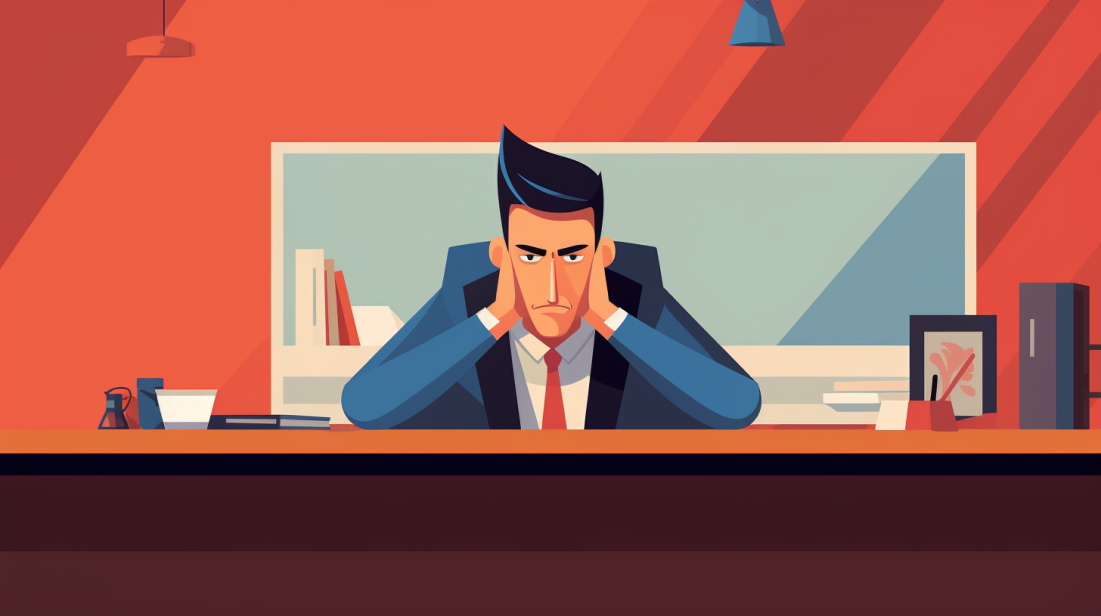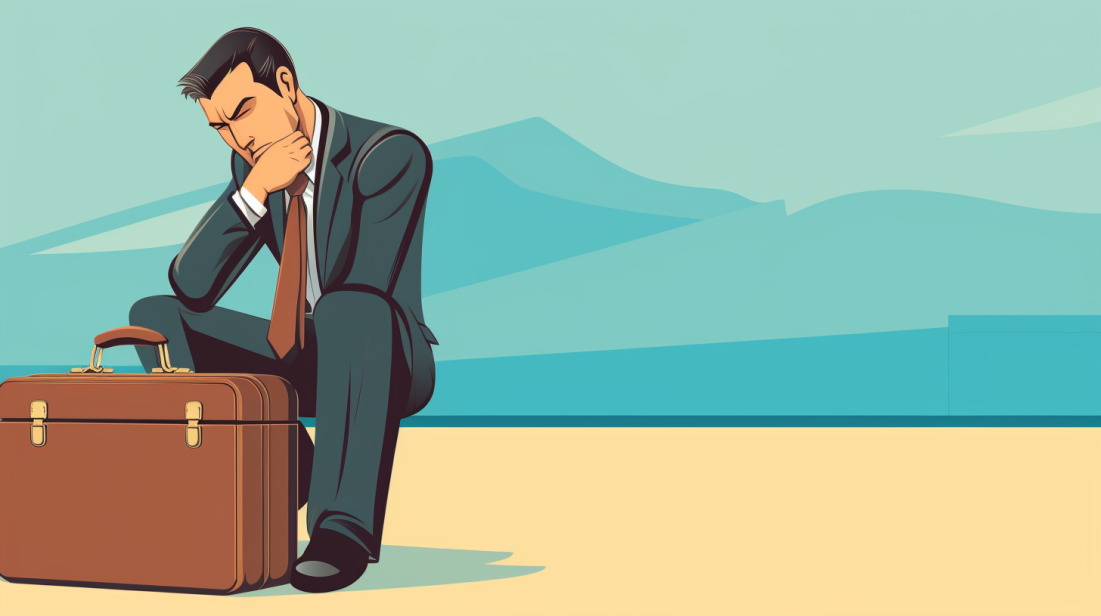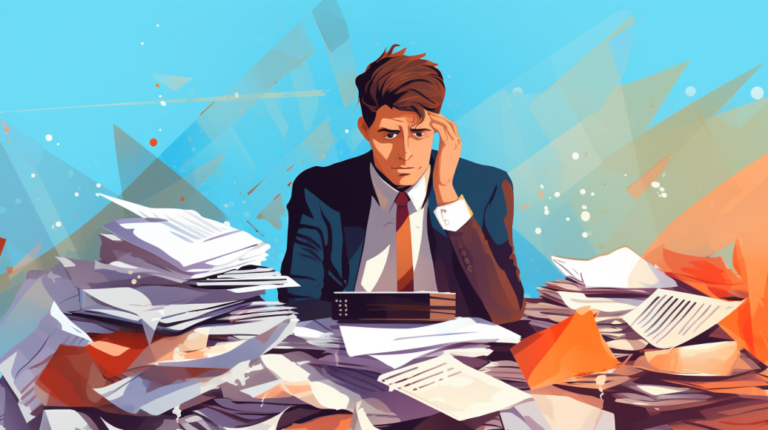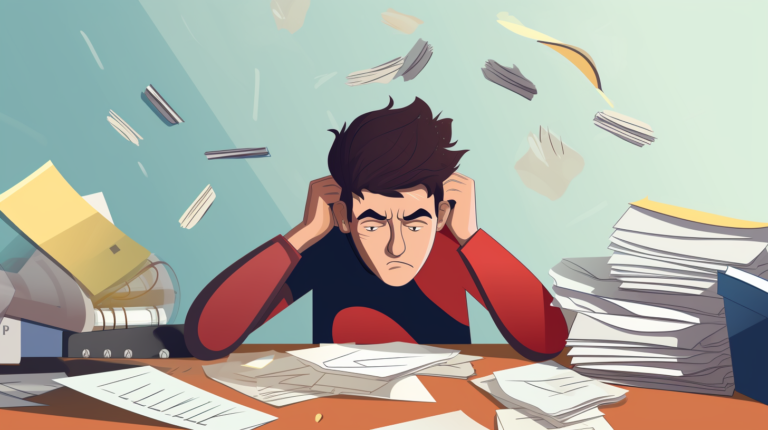How To Manage Debt After A Sudden Job Loss

Experiencing a job loss can feel like the ground has dropped from beneath your feet, and juggling debt during these uncertain times can seem akin to climbing a mountain without gear.
I’ve journeyed down this rocky road myself, so I intimately comprehend those long nights spent counting expenses instead of sheep. But don’t worry, there is light at the end of the tunnel.
Through extensive research and personal experience, I’ve gathered vital tips on how to handle your debts effectively after an unexpected career hiccup. Ready to navigate through this storm? Let’s dive in together and explore crucial strategies that will keep you financially steady as you chart your course through unemployment’s uncharted waters!
Key Takeaways
- Job loss can make it hard to handle debt. It’s key to pick which bills to pay first.
- Credit card firms like Citi or Discover may offer help after job loss. This help could come in the form of lower payments, less late fees or a break from making payments for some time.
- Unemployment insurance gives money when out of work. Other ways to get cash are using credit cards and pulling from retirement accounts or 529 Plans with care.
- Paying at least the minimum on every bill helps keep your credit score safe during a jobless period.
The Impact of Sudden Job Loss on Debt Management

Job loss can be a big blow to debt control. Money is tight and bills start to pile up. Paying credit card debt becomes harder without a steady income. In fact, just missing one payment can drop your credit score by 80 points! This bad mark stays on your report for seven years too.
Suddenly losing a job could mean depending on severance pay for some time. Today, more employers are offering this kind of help – about 64% compared to only 44% two years ago. Yet, it’s not always enough or may not even be an option for everyone.
Secured loans like auto and home loans must still come first in paying debts so you don’t lose your car or house.
Strategies for Managing Debt After Job Loss
Facing a sudden job loss can be stressful, but with the right strategies, managing debt is possible. One of the first steps to take is prioritizing payments; focus on essential bills and secured debts such as your mortgage or car payment.
Credit card companies often offer help during financial crises in the form of hardship plans. These may include lowering monthly payments, deferring due dates or waiving interest charges temporarily – reach out to customer service teams to explore these options.
Ultimately, remember that tackling debt after job loss requires patience and careful planning.
Prioritizing Payments
Losing a job can make paying bills hard. Here is how to decide which bill to pay first:
- Look at your monthly credit card and loan payments. Pick the ones that are most important. Pay these first.
- Put food and rent at the top of the list. You need food to live and your house to stay in.
- Mortgage payments should be next. Missing these can lead to you losing your house.
- Car loans and insurance come after that. If you don’t pay these, you could lose your car or not have coverage if there is an accident.
- Student loans should be next on the list. Not paying them could hurt your credit score for years.
- Utilities like water, light, and heat should be up there too.
Seeking Help from Credit Card Companies
Telling your credit card company about your job loss is a good idea. They might have hardship programs to help you. These can lower monthly payments or stop them for some time. Some companies like Discover and Citi may even help with late fees or other charges.
Make sure you get any deal in writing from them. You should also keep an eye on your credit report to ensure it’s correct.
Exploring Hardship Plans
Hardship plans can be a saving grace when you lose your job. Think about reaching out to your credit card company right away if cash is tight. These companies may offer help, like the programs from Discover and Citi.
You could get lower payments, less interest or even pause on payments for some time. This kind of help is good for you because it makes debt easier to manage until you find a new job.
Do this with care though, as each card firm will have different ways they can aid you.
Potential Sources of Income During Unemployment

Losing a job doesn’t have to mean financial ruin. Dig into this section and discover diverse potential sources of income during unemployment, such as tapping into unemployment benefits, judicious use of credit, prudently accessing retirement accounts or considering the role 529 plans can play in managing your cash crunch.
You may find that even amidst uncertain times, there are viable paths you can take toward economic stability. Read on to understand these options better.
Unemployment Insurance
Unemployment insurance is your friend when you lose your job. It gives you money during the time when you are out of work. This cash can help you manage hard times caused by losing a job.
We all know, money is tight after a sudden job loss.
Think of unemployment insurance as a small bridge. It helps you cross from one side to the other during short-term job loss periods. Losing a job suddenly feels scary, but unemployment insurance helps ease that fear with some income support.
Using Credit and Debit Cards
You can use credit and debit cards when you lose your job. They help you pay for things when cash is tight. But, be careful not to spend too much. If you don’t pay back on time, your credit score could go down fast.
One missed payment can drop your credit score by 80 points! That mark stays on your report for seven years. So, it’s smart to keep track of what you spend with these cards.
Accessing Retirement Accounts
You can use money from your retirement accounts if you are out of work. But, this should be a last step. Taking cash from a 401(k) early can make you lose money and growth. This will hurt your funds for old age.
Some 401(k) plans let you borrow the money instead of taking it out early. You then pay it back slowly over time. Take care when using such plans to avoid big fines and losses.
Considering 529 Plans
You can use a 529 Plan in tough times. A 529 Plan is for college costs, but you can take money out if needed. This won’t cost you extra taxes or fees. If the market isn’t doing well, taking money out of the plan doesn’t mean a loss on your investments.
Also, any money that was put into the plan can be taken out without extra costs. This could act as an emergency fund during job loss. The 529 Plan lets you use your funds in different ways based on what you need at any time.
So, it’s good to think about using this type of plan when dealing with debt after losing work.
How to Prioritize Bills Amidst Financial Crisis
During a financial crisis, prioritizing your bills is crucial; begin with allocating funds for essential needs such as food and rent. Your next priority should be mortgage payments to prevent foreclosure then car loans and insurance to avoid repossession.
Address student loans, considering options like Income-driven repayment (IDR) plans or the Saving on a Valuable Education (SAVE) plan offered by some providers. Lastly, ensure utilities are covered to maintain basic living conditions during these tough times.
Keep in mind that every situation varies; thus, tailor your bill priorities based on personal circumstances and available resources.
Food and Rent

You can’t forget about food and rent when job loss hits. It’s a must to set money aside for these two important things. Reach out to your card issuers like Citi or Discover as soon as you can.
Let them know of the hardship you’re going through due to job loss. They might be able to offer hardship programs that will help with your bills. But, no specific solutions are given for food and rent expenses by these companies yet.
Mortgage Payments
Paying the mortgage is very important. It’s a big debt that you must pay every month. If you don’t, your credit score gets hurt and your house may be taken away. This is called foreclosure.
That is why it’s vital to talk to your mortgage lender if you lose your job. They can help by lowering your payments or giving you more time to pay until you find another job. Make sure this is one of the first things you do when dealing with lost income.
Car Loans and Insurance
Paying on time for car loans can stop the lender from taking your car. If you miss payments, the lender can take back the car. It’s called repossession. Talk to your loan company if money is tight.
You might get help or ease with payments. Companies like Discover and Citi offer these plans sometimes. Always get it in writing when they say yes to this deal! Car insurance is a must too, even if you owe money on your car loan.
Student Loans
Paying off student loans can be tough during a job loss. The first thing to do is to contact your lender. Tell them about your situation, and try to make a plan. For federal student loans, you might ask for an Income-driven Repayment (IDR) plan.
This can lower your monthly payments.
Private student loans may not have as many options. But don’t ignore them! Reach out to your lender anyway and see if they can work with you. At the very least, making this call shows that you are trying hard to handle this debt.
Utilities
You must also pay your utility bills. Lights, water, and heat are things we need every day. If you can’t pay the full amount, get in touch with the companies right away. Tell them about your job loss and ask for a lower payment plan or more time to pay.
Many utility companies have programs that help people who don’t have a lot of money right now. Using these plans can keep your home warm, bright, and running smoothly until you find another job.
Protecting Credit Rating during Unemploymen
Losing a job can harm your credit score if you miss payments. To keep your score safe, follow these steps. First, always pay at least the minimum on every account each month. Paying less or skipping a payment hurts your score fast.
Next, use severance pay or savings to cover costs during this time. This will prevent late or missed payments that drop scores quickly.
If money is tight, reach out to your lenders and credit card companies right away. Explain the situation and ask for help like lower monthly payments or delayed due dates. Also look into hardship programs such as Discover’s assistance plan which allows for lower interest rates and paused charges.
Always check that any new agreement with lenders is in writing. And don’t forget to check the facts on all reports from credit bureaus often to catch any mistakes early on!
Seeking Help for Debt Management

When overwhelmed by debt, seeking professional help proves to be invaluable; credit counseling services and debt settlement programs can guide you towards a manageable financial future.
Get ready to dive deep into how these entities can provide the much-needed relief during unemployment. Read on!
Credit Counseling
Credit counseling offers a way to deal with debt. This help can be very important after losing a job. Counseling gives you tools for budgeting and looking at your debts and expenses.
It also offers help in talking to those who lent you money or gave credit. For example, Discover and Citi can give aid if money is tight. They may drop fees, put off late payments, or pause needing payments for a while.
A big thing that credit counseling brings is debt management plans (DMPs). These combine bills into one payment each month. They can also lower how much interest you pay over time – from three to five years usually! Getting guidance from professionals could save your credit score too! One missed credit card payment could cause it to drop 80 points! That would stay on there for seven years! So, look into getting some advice from these pros before the debt gets too high.
Debt Settlement Program
A debt settlement program is a good tool to handle high debts. It lets you talk with credit card firms to lessen what you owe. You pay less than the full amount. But, not all companies are good for this task.
Do your homework and pick only the trusted ones.
Rebuilding Financial Health Post-Crisis

Getting your money back in shape after a crisis takes time. It’s like mending a broken bone. Start with small steps first. Pay all bills on time to build good credit again. Try to save some cash too, even if it’s just a little bit at first.
Next, make a plan for your spending and stick to it. This is called budgeting. Your new job might not pay as much as your old one did but that’s okay! The goal now isn’t being rich; it’s being stable.
Dealing with debt can be scary but there are ways out of this mess! Debt settlement programs exist to help you get rid of money owed much faster than you could alone.
Lastly, keeping tabs on your credit score is very important at this stage because it shows how well you manage money now compared to before the crisis occurred which helps banks trust that you’re able to pay back loans or handle credit cards in the future!
By ticking each task off one by one, soon enough everything will fall into place and financial health won’t seem like such an uphill battle anymore!
Conclusion
Job loss can be tough. But remember, you can still handle your debt. Keep close watch on money going in and out. Stay positive and get back on track soon!






